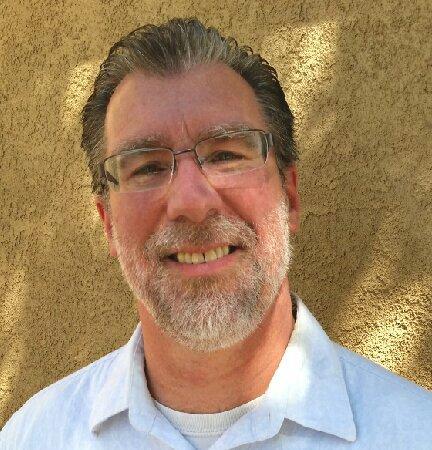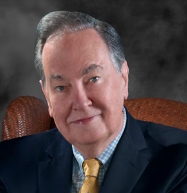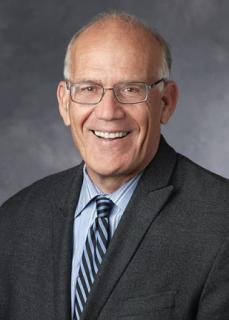Reading Banned Books Helped Me Think for Myself
By Trip Jennings
I recently learned that in the months before his 1968 assassination Robert “Bobby” Kennedy Sr. changed his position on the death penalty after reading Albert Camus, the French philosopher and author of literary classics such as The Stranger and The Plague.
I’m not writing about the death penalty, although one of my most lingering memories of my conservative well-read maternal grandfather is of him expressing his opinion on capital punishment.
Born in the late 19th century and a product of small Georgia towns in the Jim Crow South where the death penalty was deeply popular, my grandfather admitted over Sunday lunch that he still struggled with whether it was moral for the state to execute people. He was in his late 80s. <n><n> I’m pretty sure my grandfather’s politics didn’t jibe with Robert Kennedy’s. But the two men did share one thing: a love of reading. Like Kennedy, my maternal grandfather devoured books, usually ancient classics by Roman, Greek and Jewish writers such as Tacitus, Josephus, and Plutarch. <n><n> I believe that my grandfather’s hesitance over capital punishment and his willingness to wrestle with how he felt about it was, in part, due to a fertile, inquisitive mind that he had fortified by reading widely and deeply over several decades.
I mention Robert Kennedy and my grandfather and their reading habits because last week was Banned Book Week.
Books have become a political hot potato in recent years in the latest paroxysm of moral panic that has led to impassioned calls to remove books from schools and local libraries.
I hate it.
Mine is not a political, partisan, or ideological position. I’m just a book lover who was reading before I even knew banning books was a thing who finds himself continually surprised at what’s on the list of exiled titles.
Some are beloved; others are deeply profound meditations on what it is to be human in an often-unjust world. According to the archives kept by the American Library Association and the History Channel, here are a few books that have been banned at one time or another.
The Adventures of Huckleberry Finn
To Kill a Mockingbird
The Bluest Eye
Of Mice and Men
The Catcher in the Rye
The Color Purple
The Bible (yes, this was banned somewhere by someone)
The Grapes of Wrath
Slaughterhouse-Five
1984
These days, I am an avid book lover, but I came late to it. Only after I graduated from college did the reading bug bite.
Turns out, I didn’t like being told what to read in class, but I loved reading when I was the one choosing the titles. In my 20s and 30s, you could find me juggling Anne Rice’s early vampire novels (Interview with the Vampire is especially good) with thousand-page histories on the civil rights era in the South and more obscure titles. John Dos Passos’ USA Trilogy ( The 42nd Parallel, 1919, and The Big Money) comes to mind, as does Polish writer Henryk Sienkiewicz’s 3,500-page Trilogy about the now-forgotten Polish-Lithuanian Commonwealth, a powerful kingdom that vied for land and status in central Europe in the 17th and 18th centuries.
Before long, I was dipping into philosophy, theology, ethics, and philosophy of science. I also began to diversify who I read — early on, it was mostly white men whom I picked up.
Because I grew up in the Deep South I’d always been fascinated by African American authors, so I searched out books by Toni Morrison, Alice Walker, James Baldwin, Zora Neale Hurston, and others. My wife, who’d read Latin American literature in both English and Spanish in college, helped me further diversify my reading, suggesting Mexican and South American writers to me. Reading them, in turn, triggered my curiosity about authors from nations in Africa and Asia, as well as Indigenous writers. <n><n> As I became a more sophisticated reader, I learned it was important to learn something about the person I was reading because the perspective they were writing from, more often than not, was shaped by their own life experiences.
That led me to pick up more women and LBGTQ+ writers, not for ideological reasons but out of curiosity. Here were fellow humans writing from perspectives shaped by lives that were different from mine. However, in deep and profound ways, oftentimes I recognized myself in their books. Like me, they confronted age-old questions — where do you find meaning in a life that lasts only a short while? Where do you find love? How do we treat others in a world that is so often unjust?<n><n> As I approach a certain age, I increasingly realize the irony that comes with a love of learning: the more I know, the more I know how much I don’t know. Not having all the answers isn’t troubling, however. I fit into a grand tradition preceded by a cloud of witnesses — as adults in my childhood church used to say — of people similarly infected by a sense of wonder and a passionate inquisitiveness. People like Solon, the ancient Greek lawmaker, who is said to have remarked “I grow old always learning many things” and the great Renaissance painter / sculptor Michelangelo Buonarotti who at 87 wrote to a friend: “Ancora Imparo – I am still learning.” <n><n> Which brings me back to my grandfather and Robert Kennedy, Sr.
In a society where people are besieged by messages to think for themselves, I believe my grandfather’s decision to buck popular opinion on capital punishment in the Jim Crow South was a mark of his fertile, curious mind shaped by decades of reading. The same goes for Kennedy and his shift on the death penalty.
One final note. I am not saying everyone must read books to be able to think for themselves, I am saying that books were and are central to my own journey.
There are many ways one can learn to think for themselves. But it always involves curiosity and an urge to follow its meandering sense of direction.
Banning books represents the opposite. It attempts to short-circuit inquisitiveness before it can pose questions that could lead you to wrestle with a given subject and perhaps gain a deeper understanding of yourself and the world about you.
Trip Jennings started his career in Georgia at his hometown newspaper, The Augusta Chronicle, before working at newspapers in California, Florida and Connecticut where he reported on many stories, including the resignation and incarceration of Connecticut’s then-governor, John Rowland, and gang warfare in California. Since 2005, Trip has covered politics and state government for the Albuquerque Journal, The New Mexico Independent and the Santa Fe New Mexican. He holds a Master’s of Divinity from Columbia Theological Seminary in Decatur, Ga. In 2012, he co-founded New Mexico In Depth, a nonpartisan, nonprofit media outlet that produces investiative, data-rich stories with an eye on solutions that can be a catalyst for change



